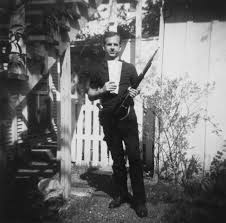The Life and Legacy of Lee Harvey Oswald

Introduction
Lee Harvey Oswald is a name synonymous with one of the most shocking events in American history—the assassination of President John F. Kennedy on November 22, 1963. Understanding Oswald’s life and actions holds profound importance not only for historians but also for anyone interested in the societal and political ramifications that followed one of America’s darkest moments.
Early Life and Background
Born on October 18, 1939, in New Orleans, Louisiana, Oswald’s upbringing was tumultuous. His father died shortly before he was born, and his mother moved the family around frequently due to financial struggles. By the time he reached his teenage years, Oswald had developed a fascination with communism, which would play a significant role in his later actions.
Military Service and Defection to the Soviet Union
After a brief and troubled adolescence, Oswald enlisted in the United States Marine Corps, where he was trained as a radar operator. His discontent with the American way of life surfaced when he defected to the Soviet Union in 1959, seeking a new ideology. However, his life in Russia was not what he expected, and he returned to the United States in 1962 with his Russian wife, Marina.
The Assassination of JFK
On that fateful day in Dallas, Texas, Oswald was arrested shortly after the assassination of JFK. He was accused of shooting the president from the sixth floor of the Texas School Book Depository. However, Oswald denied both the murder and the killing of a Dallas police officer, J.D. Tippit, later that day. His trial was never held, as he was shot and killed by nightclub owner Jack Ruby two days later, while in police custody, further complicating the public’s understanding of the events.
Theories and Controversies
Oswald’s motivations have been the subject of extensive debate and speculation. The Warren Commission concluded that he acted alone, but conspiracy theories abound, suggesting he was part of a larger plot involving various political and crime syndicates. The lack of concrete evidence has led to endless discussions surrounding the events leading up to the assassination.
Conclusion
Lee Harvey Oswald remains a pivotal figure in American history, symbolising not just the act of violence against a president but also a myriad of unresolved questions about American society during the Cold War. As historians and societies continue to grapple with the implications of his actions, understanding Oswald’s life contributes to a broader narrative about political dissent, conspiracy, and the impact of personal ideology on public actions. The significance of Oswald’s legacy persists, keeping the discussions about JFK’s assassination alive in American discourse.
